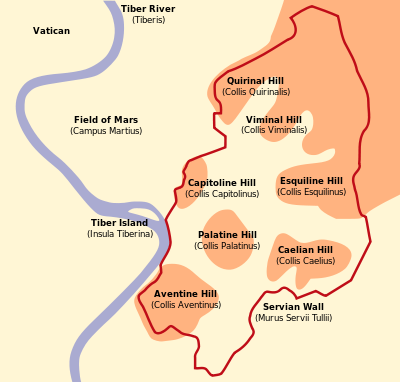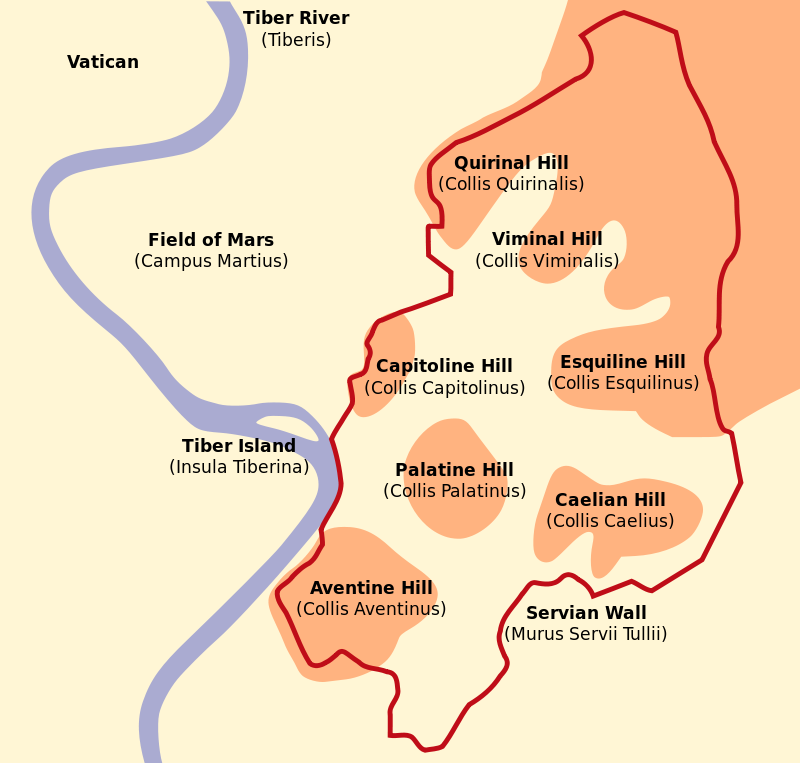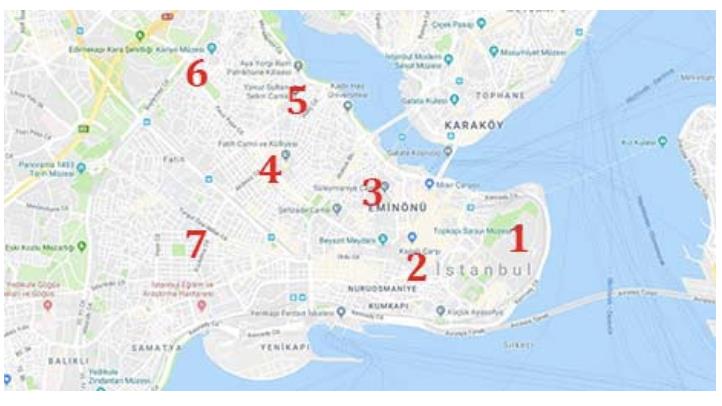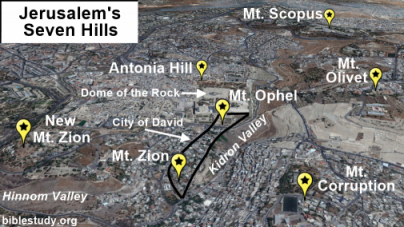The Latin phrase civitas septicollis, or "seven-hilled city," is an allusion to Rome. According to Joseph Lomas Towers in his Elucidiations of Prophecy, Ch. XIII, p. 199,
Rome was as well known by its situation on seven hills or montes, as by the name of Rome itself; Urbs septicollis was never mistaken for any other city, Roman authors have so fully determined the sense of it.
The seven hills are:
- Aventine Hill (Latin, Aventinus; Italian, Aventino)
- Caelian Hill (Caelius, Celio)
- Capitoline Hill (Capitolium, Campidoglio)
- Esquiline Hill (Esquilinus, Esquilino)
- Palatine Hill (Palatinus, Palatino)
- Quirinal Hill (Quirinalis, Quirinale)
- Viminal Hill (Viminalis, Viminale)

According to Wikipedia,
"The Seven Hills of Rome (Italian: Sette colli di Roma) east of the river Tiber form the geographical heart of Rome, within the walls of the ancient city."
In his Carmen Sæculare, the Roman poet Horace wrote,
When Sybilline verses have issued their warning
To innocent boys, and the virgins we’ve chosen,
To sing out their song to the gods, who have shown their
Love for the Seven Hills (septem...colles).
O kindly Sun, in your shining chariot, who
Herald the day, then hide it, to be born again
New yet the same, you will never know anything
Mightier than Rome!
Christopher Wordsworth, in his Union with Rome, Ch. I, pp. 3-4, also lists several other Roman authors who refer to Rome in a similar manner.
On another note, I was examining the Latin which states,
Petrus Romanus, qui pascet oves in multis tribulationibus:
quibus transactis civitas septicollis diruetur,
& Iudex tremẽdus iudicabit po pulum suum. Finis.
While the verb pascet, a conjugation of pasco, can mean to feed an animal (like sheep; cp. Vulgate of John 21:16), it can also mean "to lay waste, ravage" (cp. Vulgate of Mic. 5:6; Lewis & Short, I. II. 2.).
Therefore, this Peter the Roman may not be the one "feeding" or nourishing the sheep, but the one persecuting the sheep. Just something to consider.





Revelation 17:9